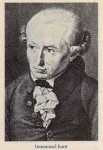This is the “justice in production” argument in a nutshell posted on the PBS Making Sen$e website.
Classical Liberalism and the Firm
This is a scan of my chapter in the new book: Commerce and Community: Ecologies of Social Cooperation, edited by Robert F. Garnett, Paul Lewis, and Lenore T. Ealy. London: Routledge, 2015.
The Neo-Abolitionist Case Against Renting People
The talk presents the arguments from inalienable rights theory in a neo-abolitionist framework as making the case against the renting of people, i.e., against the employment relation–echoing the abolitionist case against the owning of people.
Talk on property theory at UMKC, Nov. 2014
These are the slides, with some minor additions and editing, for a talk On Property Theory given at the University of Missouri at Kansas City Economic Department November 17, 2014.
Property and Production
This is the 30th anniversary of the publication of this paper, Property and Production, which laid out the whole property-theoretic analysis of production. I would not change a word today.
On Property Theory
This paper is an introduction to property theory including the invisible hand mechanism which handles the initiation and termination of property rights in an on-going private property market economy. The Fundamental Theorem is that when Hume’s conditions of no involuntary transfers and no breached contracts are fulfilled, then the Lockean principle of people getting the fruits of their labor, i.e., imputing legal responsibility in accordance with de facto responsibility is satisfied. The major application is to the current system of a private property market economy based on the renting of persons, i.e., the employment contract.
This is a reprint of the paper in the Journal of Economic Issues in Sept. 2014.
Kantian Personhood Principle
This paper formulates the labor theory of property and democratic theory in the context of the Kantian personhood principle to treat other persons always as ends in themselves and never simply as means.
The Market Mechanism of Appropriation
This is a non-mathematical treatment of the fundamental theorem about the laissez faire mechanism for property appropriation.
Hume Implies Locke: Fundamental Theorem of Property Theory
The fundamental theorem for the invisible hand mechanism in the property system is that if Hume’s conditions are satisfied, then the invisible judge imputes in accordance with the Lockean responsibility principle. The paper mathematically formulates and proves the theorem using vector flows on graphs.
The Labor Theory of Property
This is a 1985 paper in a philosophical journal spelling out the labor theory of property.






